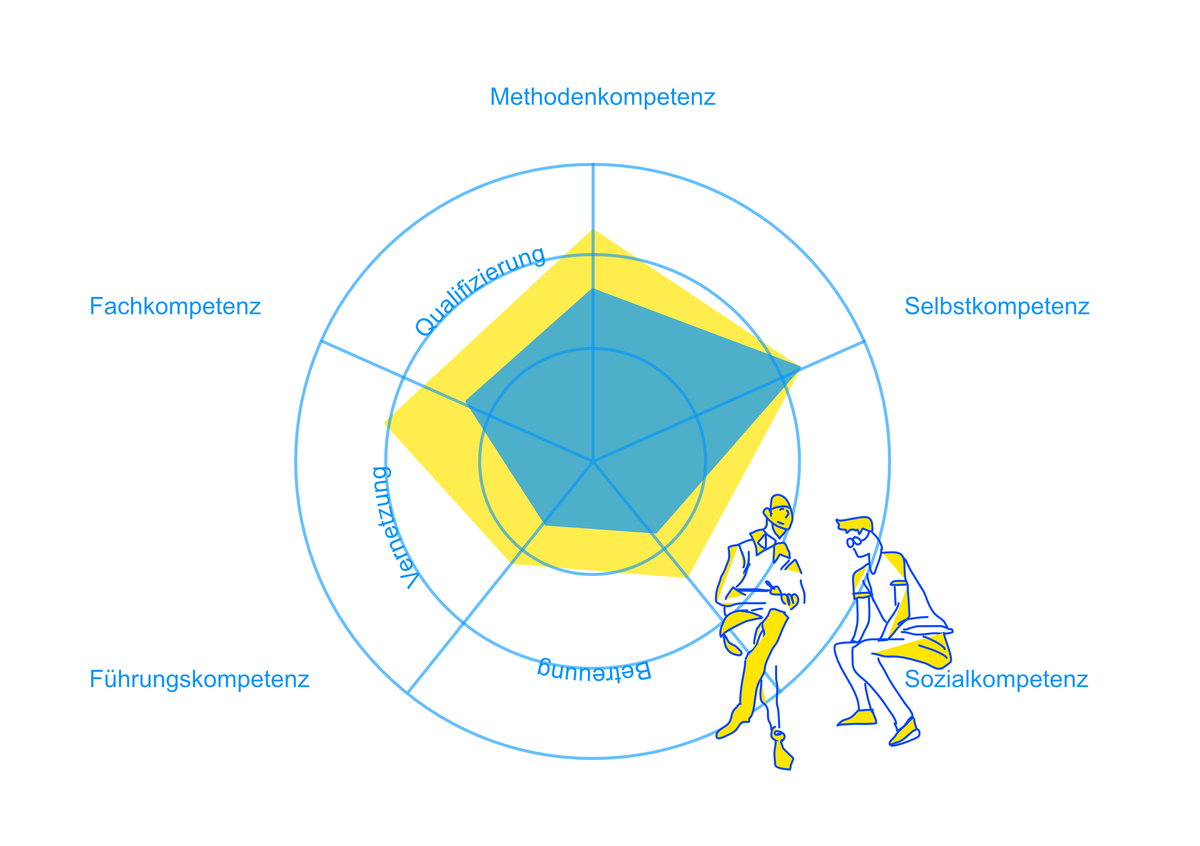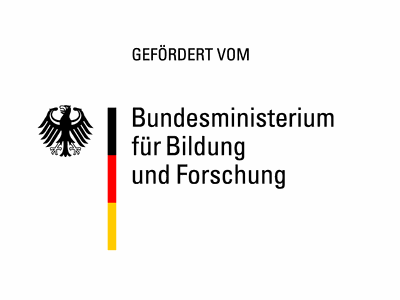Quality Offensive in Teacher Training - Project Area "Mentoring Qualification" in Vocational Education

The federal state M-V lacks vocational school teachers - now and in the future. It is foreseeable that the number of graduates will not be sufficient to counteract the lack of teachers. This makes it all the more important to upgrade the vocational school teaching profession and make it more attractive for students. This includes further improving the quality of teacher training. All participating institutions must dedicate themselves to this goal, including the University of Rostock, the Ministry of Education with its affiliated institutes and, of course, the vocational schools with their teachers. However, there is not always a successful dovetailing between the parties involved. Students pass through all these institutions, but seldom receive comprehensive support.
This is where the mentor qualification of the Institute for Vocational Education in cooperation with the Center for Teacher Education and Educational Research (ZLB) comes in. In close cooperation with the mentors, ideas and concepts are developed to support the students during the practical phases (internships and legal clerkship). At the same time, the close cooperation with the schools where the mentors are employed creates an intensive exchange between theory and practice, which can stimulate both areas. By involving the "Competence Center for Vocational School" (KBS) in the planning, design and implementation of new concepts, the transfer into professional practice is guaranteed and in the long run transferred into the regular structures.
Objectives
The aim is to improve the quality of teacher education and here there is also a connection to the objectives of the BMBF in its program "Quality Offensive Teacher Education", from whose funds the project is funded. The project is implemented in cooperation and within the framework of the state project "Lehren in M-V“ together with the ZLB and other didactic mentoring projects.
Establishment of a network
For an optimal coordination of the training phases in the teacher training program, the establishment of a network between the Institute for Vocational Education (ibp), the vocational schools (BBS) and the heads of department of the Ministry of Education in M-V is absolutely necessary. A regular didactic exchange and comparison of the teaching methods can establish a sustainable support of the practical parts in all two training phases. At the same time, students of vocational pedagogy should gain insights into the school landscape of the federal state M-V as early as possible. For a successful education, the connection to pedagogical and subject-specific practice must be established early on. The first points of contact during the first phase of training are the internships (three weeks of orientation internship in the Bachelor's programme and six weeks of main internship in the Master's programme), which BBS successfully supports and accompanies.
For the successive expansion and establishment of the network, up to 30 vocational school teachers who act as mentors will be involved at different locations during the project period. The qualification phases are each dedicated to different fields. In the first project phase, the disciplines of metal technology and agricultural economics will be integrated.
The acquisition of the mentors is done by means of an outreach approach. New participants are to be recruited through personal visits and the presentation of the qualification series at professionally relevant locations. Participants from previous school years will continue to be individually accompanied and supervised outside the qualification series. The aim is to support the networking of the respective qualification series, for example by initiating subject-specific further training events. Offers on the part of vocational pedagogy for the further training catalog of the IQ MV/ KBS seem to make sense, since in this way the acquisition of further interested participants is supported. At the same time, specialist days and conferences can also be a medium that supports networking between the individual vocational schools and the Institute for Vocational Education (ipb).
If necessary, relevant vocational fairs can be used for the acquisition and establishment of the network.
Qualification of the mentors
The qualification of the mentors takes place via the further education days within the project series. The pedagogical consequences resulting from the heterogeneous composition of the target groups as well as from the professional requirements are taken into account.
In order to deepen the qualification and to make it sustainable, further training opportunities are offered beyond the year of the qualification series (see network). This is guaranteed by the individual support of the schools. It is also conceivable that thematic focuses are set within the framework of the school visits that take place with the students during their preparations for their internships.
The result should be materials that give both teachers at BBS and students of vocational education and training a deeper insight into the didactics of their first subject.
Supervision of students and trainees
The main objective of the Institute for Vocational Education is to provide optimal support for students during their practical phases and their traineeship. Especially against the background of increased dropout rates in teacher training, it is necessary to use practical phases to motivate students. Personal contacts and discussions in advance are suitable for this. A deepened structural knowledge can support this.
The first practical part is the orientation internship (three weeks), which must also be intensively supported and accompanied by the vocational schools, since the decision for the continuation of the respective vocational education studies is most likely to be made here. For this purpose, the students should have the opportunity to visit schools and mentors before the beginning of the internship in order to be able to decide for themselves on an optimal internship location. At the same time, didactic orientations can support the students in transferring the contents learned into the practical phase. Integration can be achieved through well-structured materials and/or subject exchanges (see Qualification of mentors).
This procedure should be repeated for the main internship, so that the students have a sound knowledge of structure and subject didactics at their disposal during the transition to the second phase of training / to the internship, and the choice of place for the internship can be made in a targeted manner.
Teaching staff for subject didactics
Within the framework of the qualification series, it is planned to exchange mentors with didactic experts from the University of Rostock (and beyond). The goal is to critically examine and continuously develop the teaching according to the requirements of professional practice. Through continuous qualification, networking and participation in the first and second practical phase, teachers can become important allies for didactic teaching. It is conceivable that interested and experienced mentors could be integrated into the university's specialized didactic training in the long term (through teaching assignments). January 2017 to December 2019
The project is funded by the German Federal Ministry of Education and Research within the framework of the nationwide vocational orientation program (BOP). The project is based on a cooperation agreement between the federal government and the state of Mecklenburg-Vorpommern.
Contact person
Stephanie Dahn
Institute for Vocational Education | Faculty of Philosophy | University of Rostock | August-Bebel-Str. 28, Room 4041 | 18055 Rostock | Phone: +49 (0) 381 498-2641 | Fax: +49 (0) 381 498 2694
E-Mail: stephanie.dahnuni-rostockde

Quality offensive in teacher training - "mentor qualification" - Project team
Dr. Philipp Struck (Project management)
Prof. Dr. Franz Kaiser (Focus of work: concept and research consulting)
Stephanie Dahn (Main areas of work: scientific accompanying research, conception and organization of further education)
